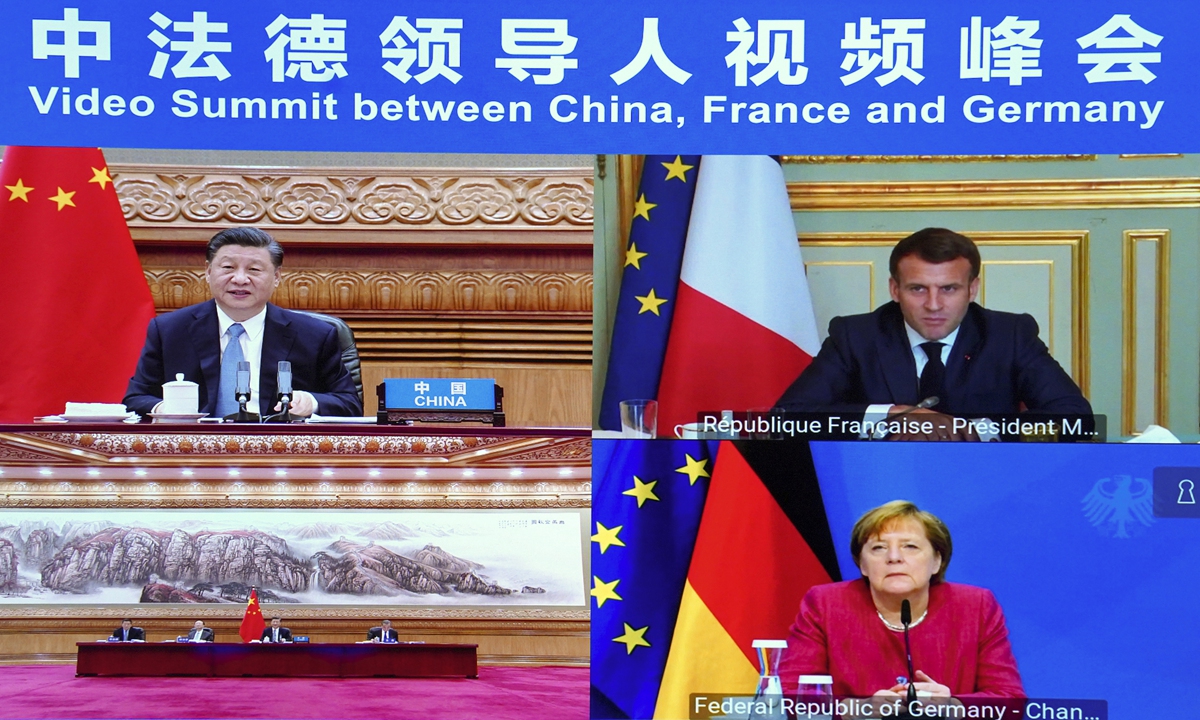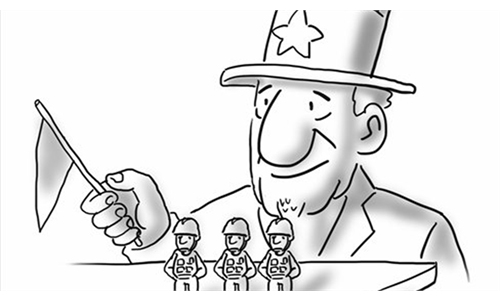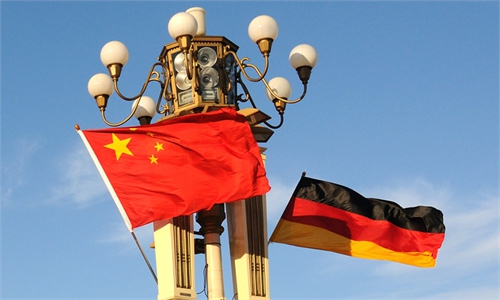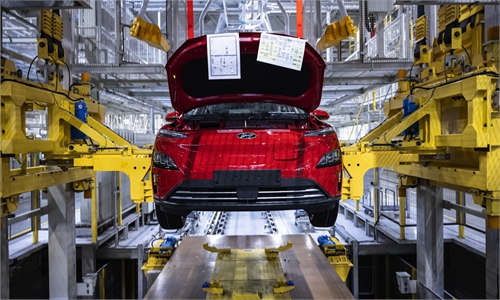Chinese, European leaders' summit positive sign to push ties forward after setback: analysts
Robust climate cooperation creates favorable atmosphere for more areas

Photo: Xinhua
At the invitation of French President Emmanuel Macron, Xi attended the virtual meeting with the French leader and German Chancellor Angela Merkel on Friday. The Chinese leader reiterated China's ambitious plan of becoming carbon neutral by 2060, and the country's international commitment in coping with climate change issues.
The leaders of Germany and France welcomed Beijing's aim to reach the goal. Macron vowed to cooperate with China on fair distribution of COVID-19 vaccines, while Merkel expressed willingness to push forward the signing of the China-EU investment treaty.
Xi stressed that relations between China and the bloc face various challenges, yet both sides have to firmly hold the direction and main tone of bilateral ties development.
The outcome of the meeting mirrored China and the EU's shared willingness and need to stabilize and push forward bilateral relations after the recent setback over Xinjiang human rights and other issues, Cui Hongjian, director of the Department of European Studies at the China Institute of International Studies, told the Global Times on Friday.
Climate created a platform for the leaders to discuss a wide range of topics including COVID-19 vaccines, the investment treaty and global supply chain, Cui said, noting that starting with the climate change response, the two sides can expand the friendly atmosphere to enhance communications and effectively manage differences.
China-EU relations soured last month after the two slapped each other with sanctions over Xinjiang human rights. Last week, Xi held a phone call with Merkel, in which he urged Germany and the EU to make joint efforts with China to protect and promote the healthy and stable development of their cooperation to bring more certainty and stability to the volatile world.
Leaders from both sides showed their wisdom of setting aside the small differences before it deteriorates, said experts, noting that the EU's symbolic sanctions on China, in large part, serve only to tailor to the US. Yet the EU is also wary of Washington over their disputes, such as the trade issue, and reluctance to offer EU enough COVID-19 vaccines.
Analysts said the EU's hesitation with the US is also mirrored in this summit arrangement.
The three leaders' meeting was arranged at the time when US climate envoy John Kerry was visiting Shanghai to seek climate negotiations with China, a preparation for US President Joe Biden's virtual Earth Day climate summit next week.
Inviting the Chinese leader for talks before participating in the US summit also shows the EU's mistrust for a back-pedaling US, whose frequent retreat and return from the global climate framework has waned international cooperation in this field, Wang Yiwei, director of the institute of international affairs at Renmin University, told the Global Times.
Cui also pointed out that China and the EU have taken the leadership in tackling the problem during the US absence. Though the US wanted to return "in high profile," it has to "make up the missed lessons" first.
China and Europe are pushing forward the climate agenda steadily ahead of the upcoming 2021 United Nations Climate Change Conference in Glasgow, Cui said.
Beijing and Brussels are competing on the political systematic level and partnership in diplomatic and economic arenas, yet both economies face a new transition as the world is heading to a greener, cleaner direction, said Wang, noting that success of China-EU cooperation in climate change will create a favorable atmosphere conducive to other cooperation.




